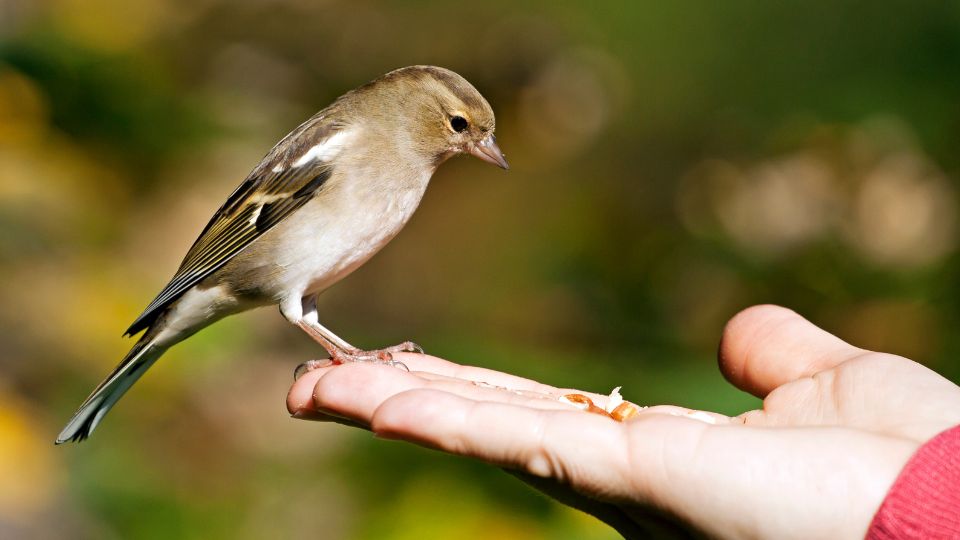In the wild, finches forage and eat weed seeds from plants like milkweed, ragweed, thistle, dandelion, and goldenrod. Finches will also eat small fruit and insects, depending on the season. To attract them to your backyard, you can feed finches their favorite food: sunflower and thistle seeds.
What Do Finches Eat?
The finch’s diet consists of seeds, grains, fruit, veggies, and an occasional bug or two. Investing in a finch feeder is a great way to attract these lovely birds to your backyard, but what should you fill it with?
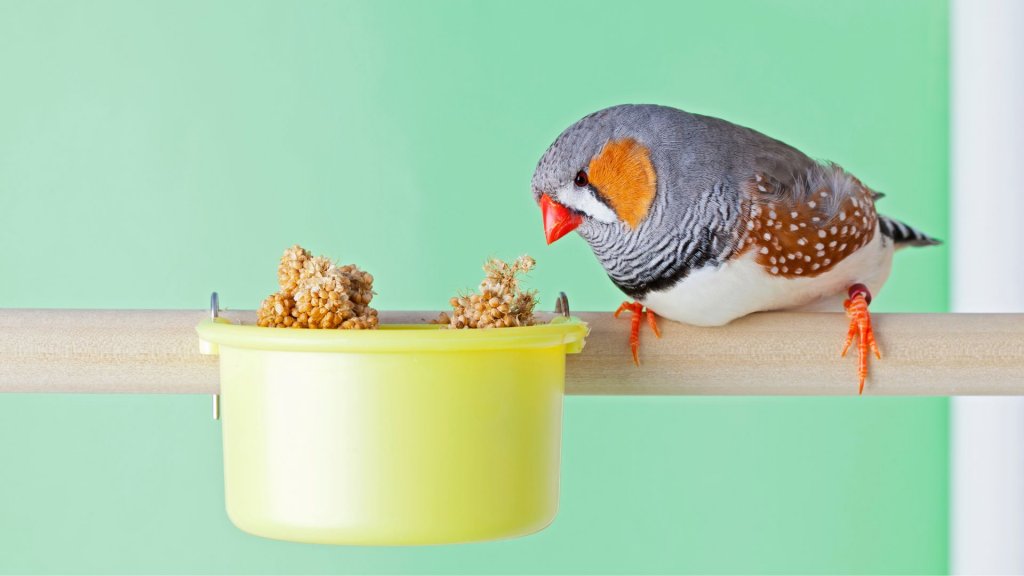
Millet
Millet is an excellent source of protein, magnesium, phosphorus, and calcium; they are Finches’s favorite food! In North America, millet only grows in the western portion of the United States in states such as Nebraska, Colorada, and the Dakotas.
The good news is that Nyjer Millet and thistle seeds are often sold alongside traditional songbird birdseed product in garden and pet stores, making it easy to score a bag to feed your backyard Finches.
If you want a feeder specifically for finches, millet is the way to go! Plus, many millet and thistle bird feeders are the perfect sizes for finches and a little too smaller for larger birds such as blue jays, cardinals, and even sparrows.
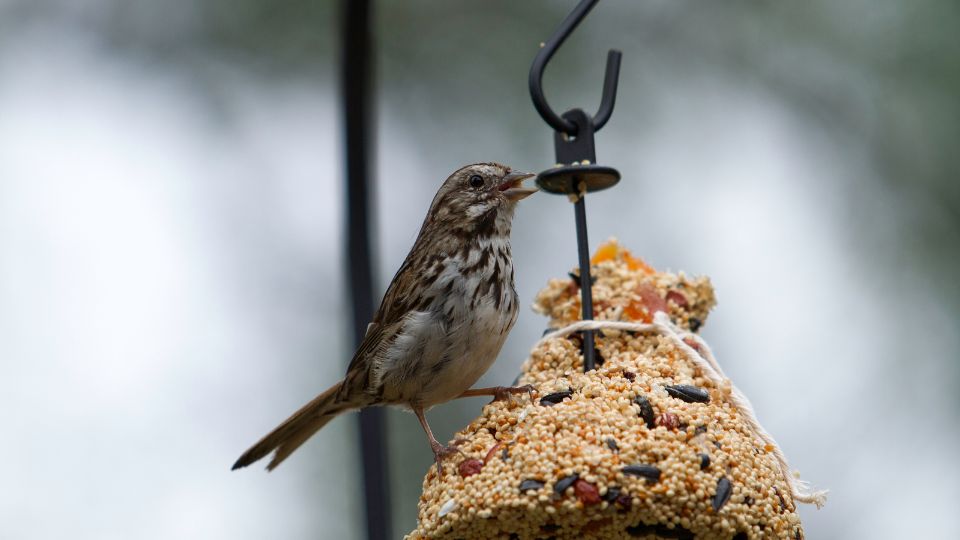
Birdseed and Seed Mixes
While things like thistle and millet are on the top of a Finch’s preferences, they will also eat classic birdseed and other seed mixes. They eat seeds throughout the year, so keep those birdfeeders stocked!
Songbird seed mix contains things like cracked corn kernels and sunflower seeds. However, their favorite seeds in birdseed mixes are black oil sunflower seeds because they are small and much easier to pop into their small beaks.
Be prepared, however, that finches aren’t the only songbirds attracted to varied birdseed and seed mixes. They often will have to mingle with other (and sometimes more aggressive) birds to grab a quick nibble.
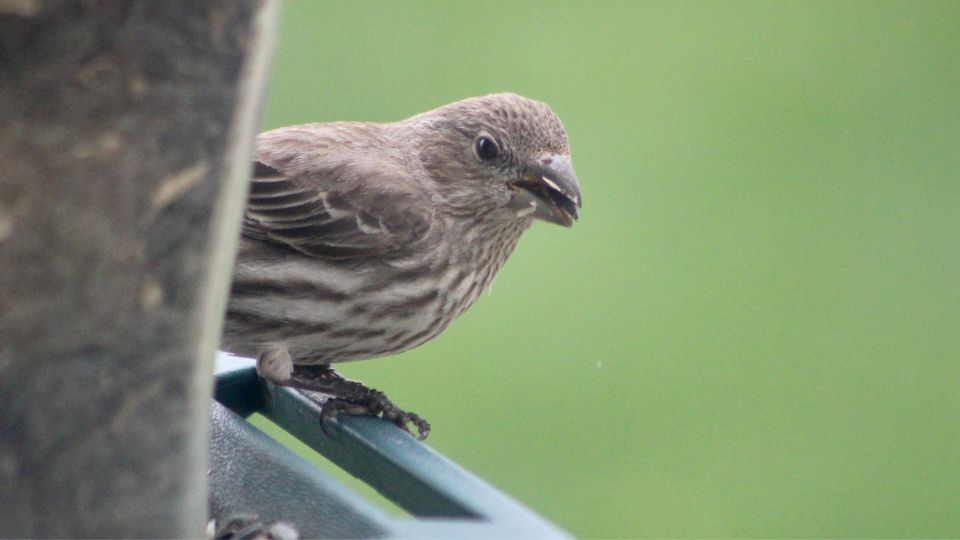
Fruits and Berries
To attract finches to your backyard, fruits and berries are excellent choices. Make sure you cut the fruit and berries into small pieces, making it easier for them to fit in their beaks.
It’s also important to note that finches are attracted to bright colors (it’s why many finch feeders are brightly colored). When selecting fruit, opt for brightly colored options like blackberries, watermelon, strawberries, raspberries, and cherries.
While they can score berries on their own in the summer, placing fresh fruit in the wintertime is a great way to treat your backyard feathered friends. It also gives them a much-needed boost of nutrition when the temperatures plummet, and the ground is covered in snow.
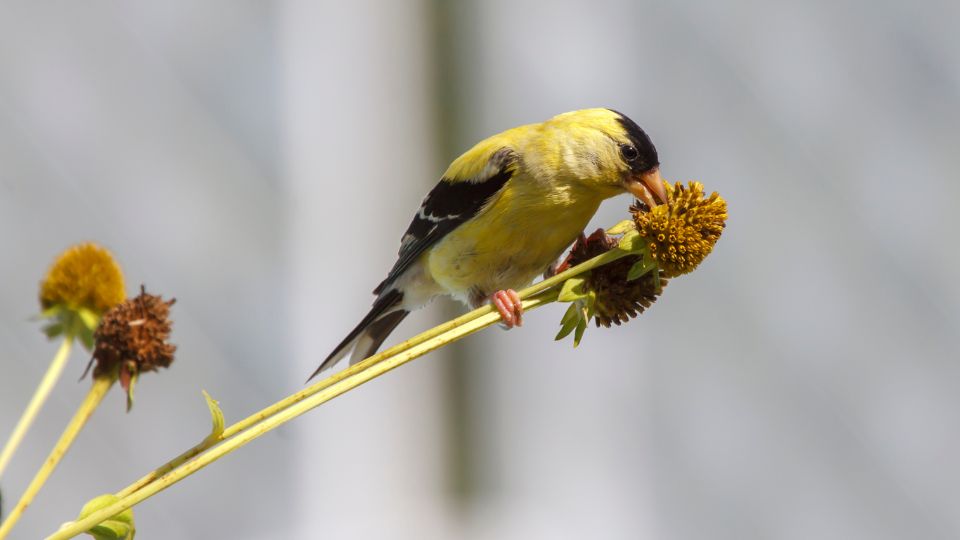
Veggies
In addition to fruits and berries, finches love veggies as well. They are not picky eaters. Just like fruit, make sure that you select colorful veggies that will attract these birds. Fruits such as pumpkin, butternut squash, cabbage, beetroot, and multicolored bell peppers are all great choices.
If your garden has an overabundance of veggies and canned more than you need, try chopping some up and placing them around your backyard feeders for your finches. You don’t need to worry about buying a special birdfeeder for veggies and fruit. Finches are ground scavengers, so you can place your offerings on the ground next to your feeders.
Variety of Plants
Finches are not just attracted to birdseed and millet, they also love plants! Flowers such as daisies, asters, and sunflowers produce tiny seeds that finches love.
While they love nibbling on the seeds, they also use other parts of the plant to build cozy nests. Planting specific types of colorful plants around your home looks great and an excellent food (and nesting) source for your backyard Finches.
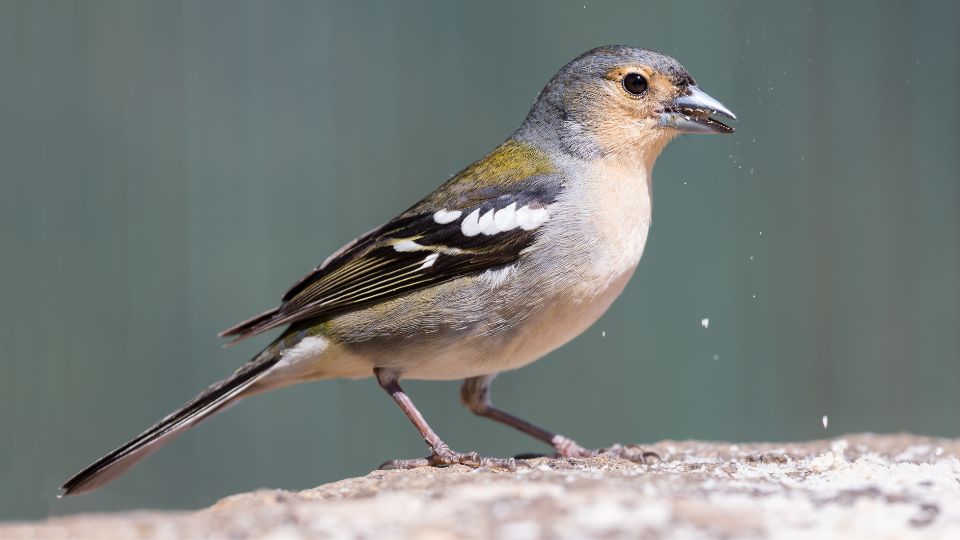
Mealworms
In the winter, mealworms are a great option to keep protein levels high. Finches love mealworms in the summer but getting their beaks on these nutritional powerhouses is difficult once the temperature plummets.
Investing in a super affordable suet feeder is a great way to keep your backyard finches fed this winter. Mealworm suet feeders are super affordable and designed for smaller birds like the Purple Finch. The fatty suet provides extra nutrition to keep their energy levels high in colder climates.
Crickets
In addition to mealworms, crickets are another fantastic source of nutrition for Finches. They’re high in protein and are the perfect backyard snack when temperatures start to fall.
Crickets aren’t as widely available as things like seeds and even mealworms, so you may need to head to a specialty pet store to get your hands on some young crickets for your Finches.
What Should I Feed my Pet Finch?
Pet Finches eat the very same foods that wild birds eat. They love similar bird food such as corn kernels, sunflower seeds, and thistle. If you are at your local pet store, there are even bags of bird seeds designed specifically for pet Finches.
Since domesticated finches don’t require as much sustenance as wild birds, feeding them things like mealworms and crickets, serves more as a treat rather than a necessity.
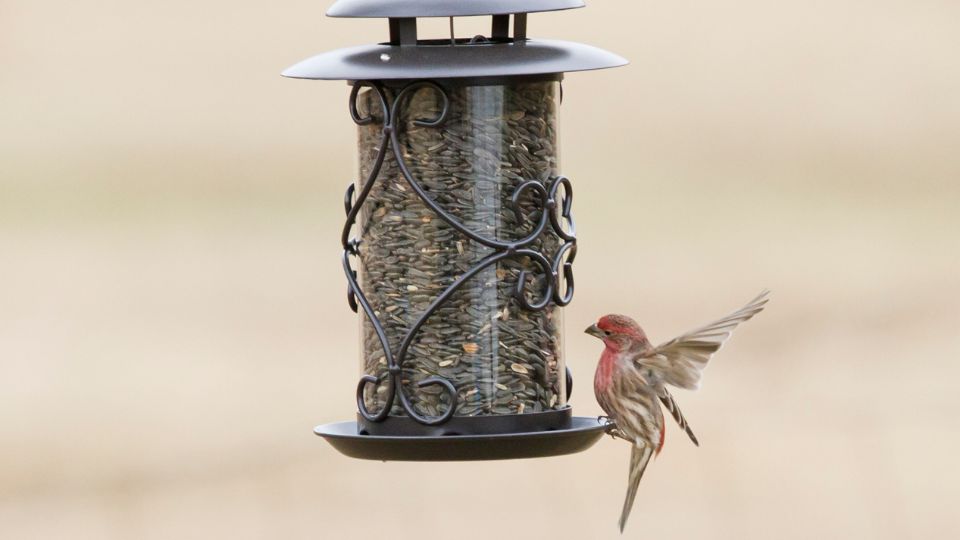
What Can I Feed Wild Finches?
In the summertime, Finches will often flock to backyard birdfeeders with songbird mixes that include sunflower seeds, corn kernels, and grains. Attract these birds to your backyard by purchasing a specific Finch feeder that is equipped for smaller seeds like thistle (one of their favorites!).
What you Should Not Feed Finches
Finches aren’t picky eaters, but there are very foods that you should never feed wild birds. Also anything containing caffeine, tobacco, or alcohol should not be fed to any songbirds.
These foods include:
Potatoes
Avocado
Beans
Garlic
Fruits stones
Rhubarb
Chocolate
Citrus fruits
Mushrooms
Eggplant
Can I Feed Finches Supplements?
For pet Finches, you may want to consider feeding them a few supplements to make up for deficiencies in their diet. A good multivitamin, such as Nekton-S Multi-Vitamin for Birds, is a great way to get extra nutrition into their water or soft food.
As far as wild birds are concerned, supplements are not needed. Wild Finches get all the nutrition they need from foraging for food and the ample offerings at backyard bird feeders.

